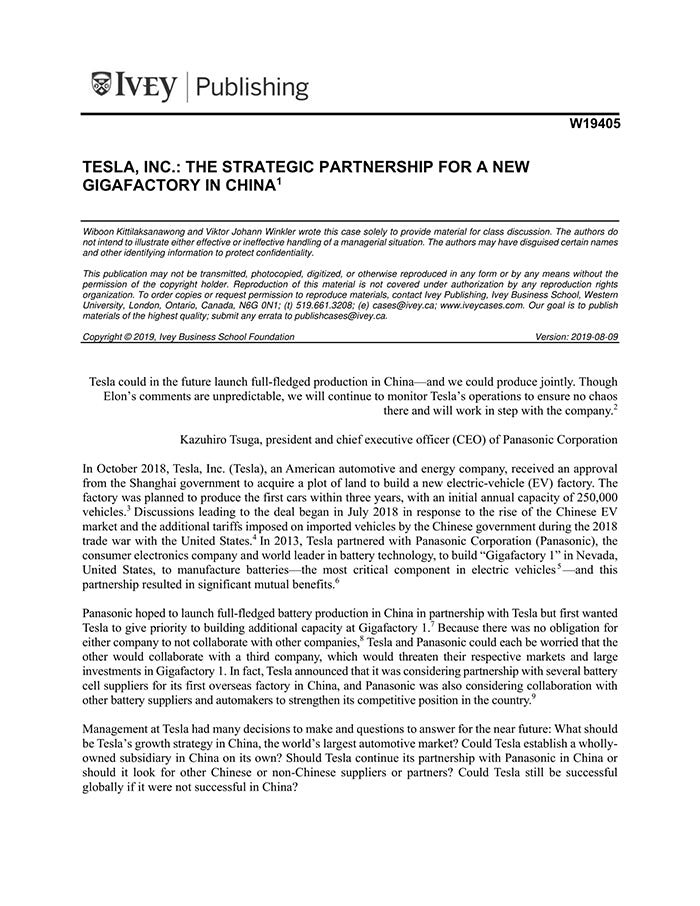Tesla, Inc.: The Strategic Partnership for a New Gigafactory in China
受取状況を読み込めませんでした
In October 2018, Tesla, Inc. (Tesla), an American automotive and energy company, received an approval from Shanghai's mayor to acquire a plot of land to build a new electric-vehicle (EV) factory, which was expected to produce its first cars in three years, and to have initial capacity of about 250,000 vehicles a year. This move was in response to a significant rise in the Chinese EV market and the additional tariffs imposed by the Chinese government during its 2018 trade war with the United States. Since 2013, Tesla had partnered with Panasonic Corporation (Panasonic)-the consumer electronics company and a world leader in battery technology-to build Gigafactory 1 and Gigafactory 2 in the United States for manufacturing Tesla's batteries. The Chinese automotive market was a business environment much different from any that the Tesla-Panasonic partnership had previously experienced. Given the Chinese government's regulations, requirements, and incentives, what should be Tesla's growth strategy in the world's largest automotive market-China. Should Tesla continue its partnership with Panasonic in China or should it look to derive more potential benefits from other suppliers? Wiboon Kittilaksanawong is affiliated with Saitama University. Viktor Johann Winkler is affiliated with Nagoya University of Commerce & Business.
【書誌情報】
ページ数:14ページ
サイズ:A4
商品番号:HBSP-W19405
発行日:2019/8/9
登録日:2019/12/10


